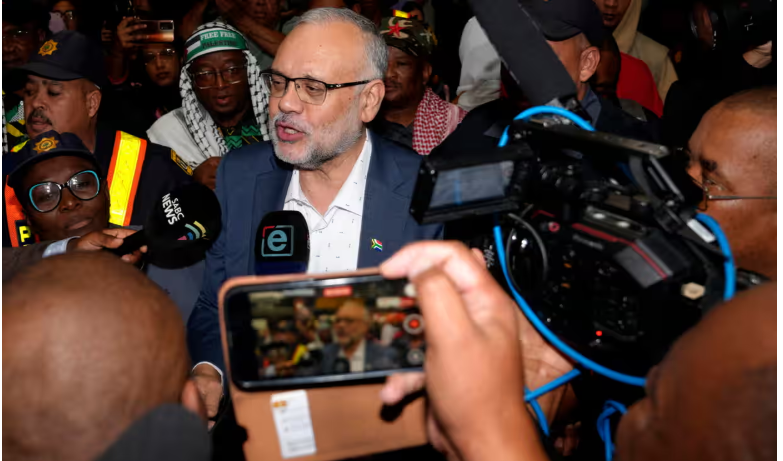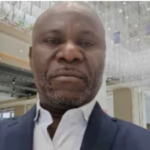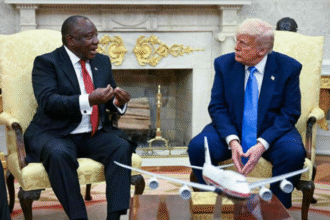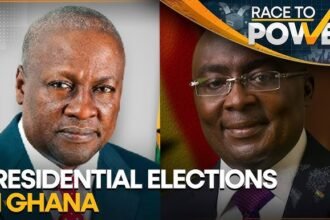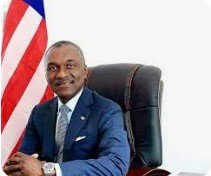Cape Town, South Africa – Ebrahim Rasool, the former South African Ambassador to the United States who was recently expelled for publicly criticizing the U.S. stance on the new trends of anti-diversity and inclusion spewed by a section of the American populace which he referred to as the “mega” movement has called for a comprehensive reset of relations between the two nations. Speaking at a press conference held in Cape Town earlier today, Rasool emphasized the need for open dialogue and mutual understanding to bridge the growing gap between the long-standing allies.
Rasool, who served as ambassador for the past three years, highlighted the historical ties between the US and South Africa, particularly Washington’s support for the anti-apartheid movement. However, he argued that recent disagreements, specifically over South Africa’s perceived neutrality on the Russia-Ukraine war and the opposition to Israel’s war on Gaza, have strained the relationship to a potentially damaging degree.
“While South Africa does not support the invasion of Ukraine and the indiscriminate death tolls in Gaza, we call for a peaceful resolution. We also believe in engaging with all parties involved,” Rasool stated. “Our historical understanding of conflict resolution necessitates a nuanced approach, one that doesn’t simply align with one side. This perspective, unfortunately, has been interpreted in some quarters as tacit support for Russia, and Gaza and that is simply not the case.”
Rasool’s expulsion followed a series of public statements where he questioned the effectiveness of U.S. regarding the Trump administration’s crackdowns on diversity and equity programs and immigration and mentioned the possibility of a U.S.. where white people would possibly no longer be in the majority.
“The supremacist assault on incumbency, we see it in the domestic politics of the U.S.A., the MAGA movement, the Make America Great Again movement, as a response not simply to a supremacist instinct, but to very clear data that shows great demographic shifts in the U.S.A. in which the voting electorate in the U.S.A. is projected to become 48% white,” Rasool said in the talk to a South African think tank.
“The current trajectory of our relationship risks jeopardizing years of progress built on shared values of democracy and human rights,” Rasool warned. “A reset requires both countries to acknowledge their differing viewpoints and engage in a sincere dialogue to find common ground.”
He called for a series of initiatives to facilitate the reset, including:
- High-level diplomatic meetings:Â Encouraging direct communication between government officials from both countries to address concerns and misunderstandings.
- Academic and cultural exchanges:Â Promoting greater understanding through increased educational and cultural programs.
- Focus on shared interests:Â Identifying areas of mutual cooperation, such as trade, investment, and combating climate change, to strengthen the bilateral relationship.
The former ambassador acknowledged the sensitivity surrounding his expulsion but reiterated his commitment to fostering a strong and mutually beneficial relationship between the U.S. and South Africa. “I believe that even in disagreement, we can find common ground. It is crucial that we work towards rebuilding trust and strengthening the ties that bind our two nations together,” he concluded.
The U.S. State Department has yet to respond directly to Rasool’s calls for a reset, but it is expected that the issue will be addressed during upcoming diplomatic engagements between the two countries. The future of US-South Africa relations remain uncertain, but Rasool’s initiative has sparked a vital conversation about the importance of open dialogue and mutual understanding in navigating complex geopolitical challenges.


